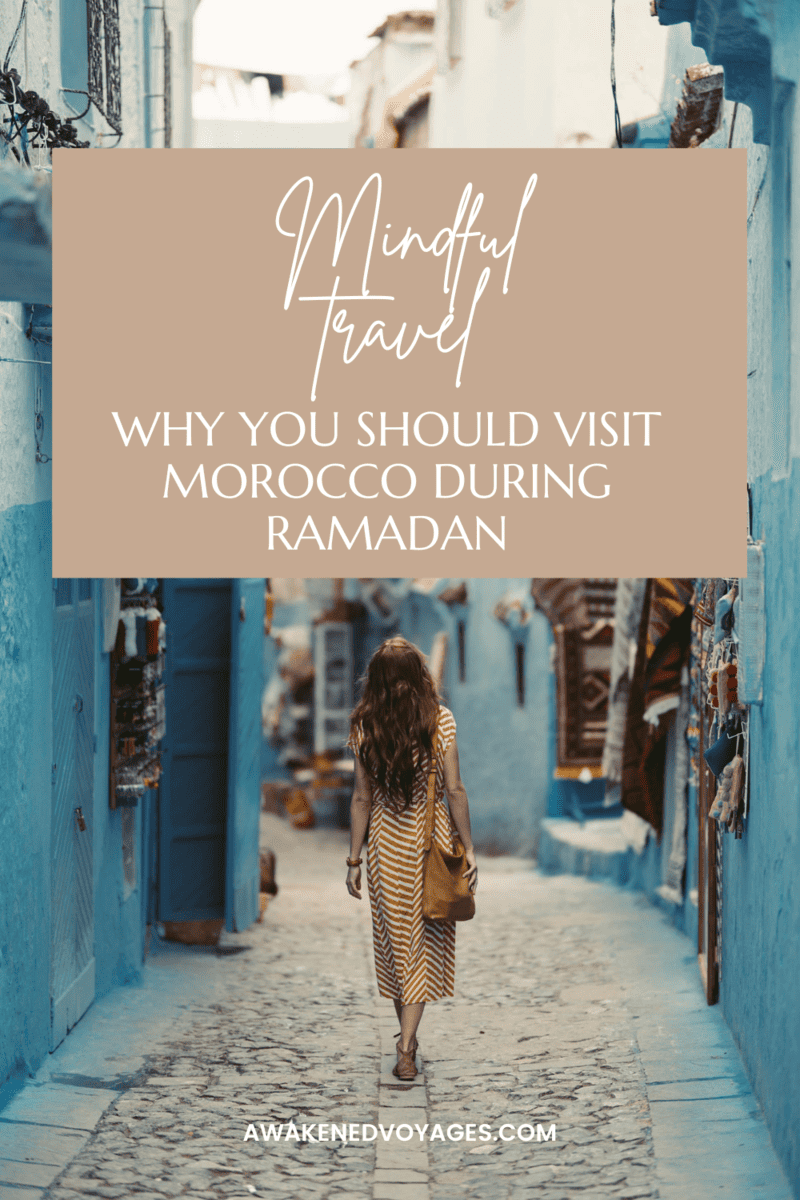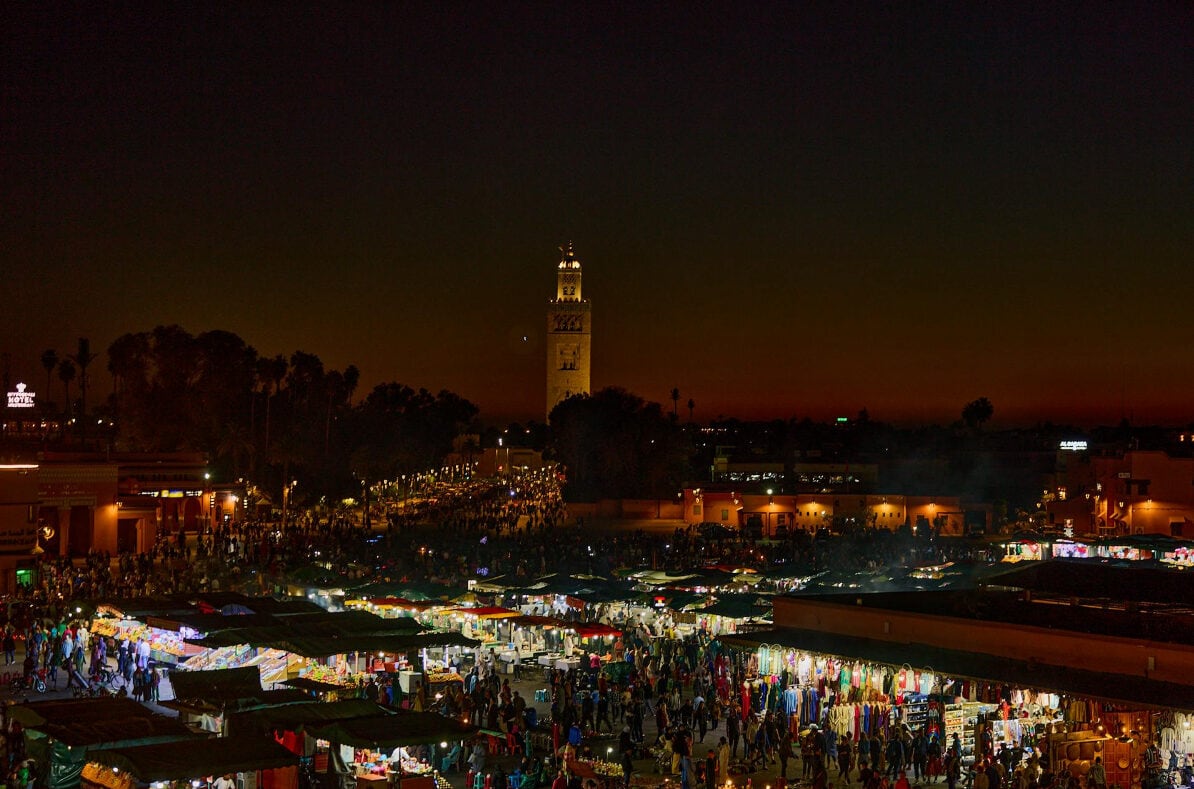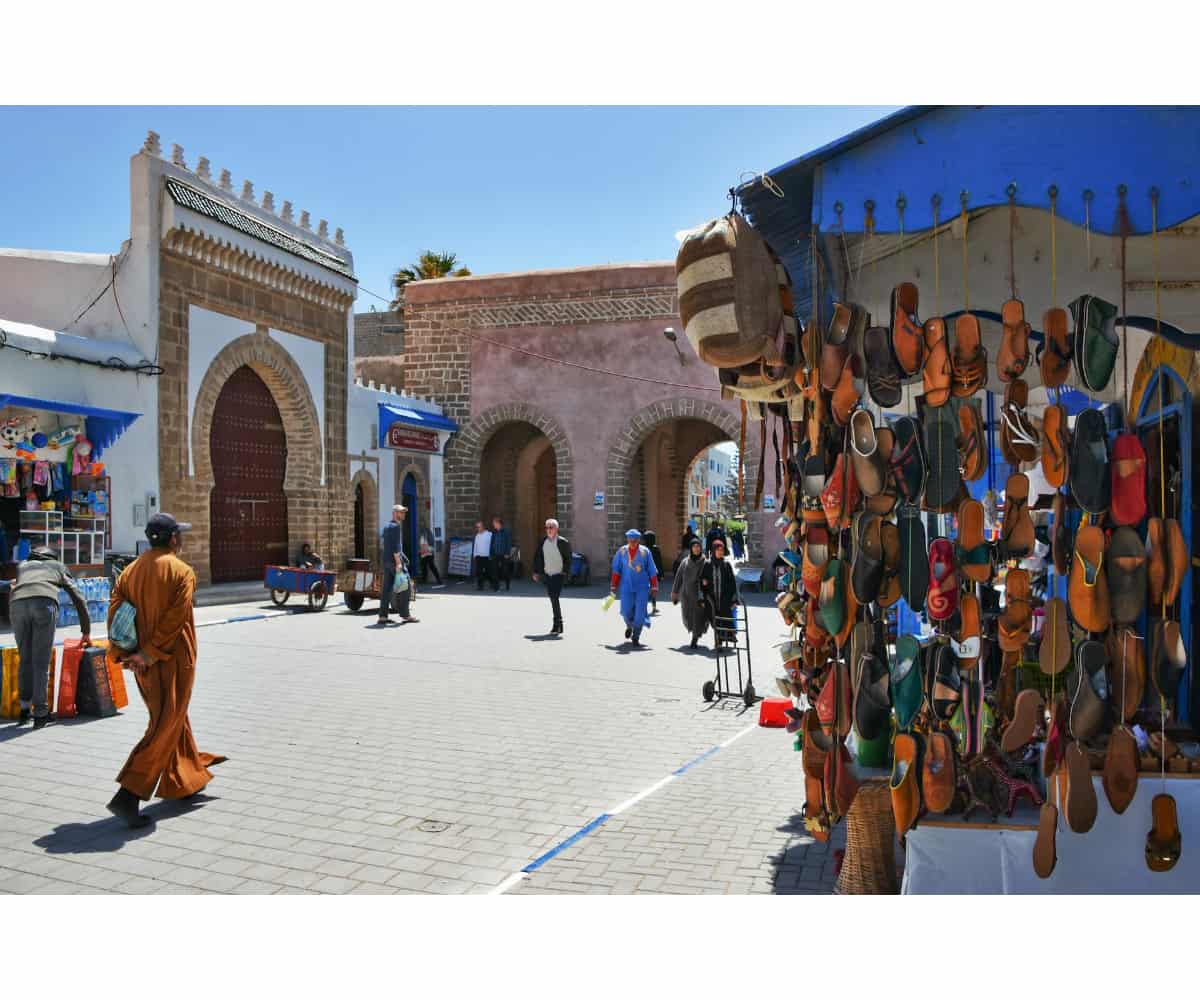
0

Ramadan is the holiest month in Islam and holds significant cultural and religious importance across the globe. Visiting Morocco during Ramadan offers a great opportunity to immerse oneself in the country’s culture, traditions, and see a different side to the one tourists usually see.
During Ramadan, Muslims observe fasting from dawn until sunset as a form of worship and self-discipline. The fast, known as “Sawm,” involves abstaining from food, drink, smoking, and other physical needs during daylight hours.
Ramadan is also a time for increased prayer, reflection, and devotion to God.
The significance of Ramadan in Morocco is deeply rooted in its history, traditions, and the spiritual fabric of its society. The month-long fasting period is marked by various customs, rituals, and festivities that reflect Morocco’s unique identity and culture.
Before embarking on your trip to Morocco during Ramadan, consider these tips to ensure a smooth and enjoyable experience:


Moroccan cuisine needs no introduction but it takes centre stage during Ramadan, with special dishes and delicacies prepared for Iftar and Suhoor (pre-dawn meal) which add to the festive atmosphere.
Breaking the fast with a communal iftar meal is a cherished tradition in Morocco, with families and friends coming together to share delicious dishes and prayers. If you ever get the chance to be invited by a Moroccan family to join them during their meal don’t pass on this wonderful experience. This would most likely be the highlight of your trip.
Some Moroccan dishes that must be tried during Ramadan are the following:
Harira : A thick and hearty soup made with tomatoes, lentils, chickpeas and meat.
Dates and Milk: A traditional combination for breaking the fast.
Pastilla: A savoury pie filled with meat and almonds or fish.
Chebakia : Deep-fried pastry coated in honey and sesame seeds often served with Harira.
Briouates: Delicate filo pastry stuffed with marzipan and coated in honey.
 Ramadan is one of the best times to visit the popular landmarks and markets as you’ll encounter fewer crowds ,particularly during the daytime when many locals are fasting. This can offer a more relaxed atmosphere for exploration and photography.
But don’t ignore the evening atmosphere either. Some of these landmarks such as Jamaa El Fna in Marrakech or the old Medina of Fes take on a magical ambiance in the evening. It’s an opportunity to meet and interact with the locals and gain a deeper understanding of the country’s heritage.
Ramadan is one of the best times to visit the popular landmarks and markets as you’ll encounter fewer crowds ,particularly during the daytime when many locals are fasting. This can offer a more relaxed atmosphere for exploration and photography.
But don’t ignore the evening atmosphere either. Some of these landmarks such as Jamaa El Fna in Marrakech or the old Medina of Fes take on a magical ambiance in the evening. It’s an opportunity to meet and interact with the locals and gain a deeper understanding of the country’s heritage. Ramadan is a time of spiritual introspection and devotion for Moroccans, and visitors can join in this journey of self-discovery. Through fasting, prayer, charity, reflection, and community engagement, individuals are encouraged to cultivate mindfulness in their daily lives which creates a deeper sense of connection with themselves and others. This is one of the best ways to experience mindful travel.
Travelling to Morocco during Ramadan can offer a unique and memorable experience. It’s a great way to gain insights into Moroccan culture and traditions, and engage in activities that promote self-discipline, spiritual growth, empathy and social connection.

